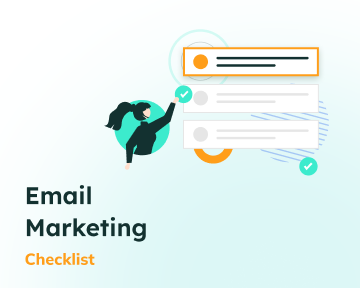One common mistake in evaluating new email marketing campaigns is the misalignment of tracked metrics with campaign goals.
Consider this scenario: aiming for a 10% boost in sales through an email campaign over the next quarter makes tracking email opens seem pertinent. However, it’s crucial not to lose sight of the ultimate objective – sales conversion. What if email opens are high, but there’s a disconnect in driving actual sales? In such cases, exploring alternative metrics directly linked to conversions becomes imperative.
Below we introduce the key metrics that serve as guiding markers, keeping you on track and enabling timely adjustments as needed.
1. Open Rate
Email open rate is the percentage of recipients opening an email. Email marketing or Marketing Automation tools are often used to automate this calculation.
Here are a few tips to positively influence open rates:
- Crafting engaging personalised subject line
- Understanding your target audience so that you provide relevant messages at the right time
- Experimenting with email send times.
Important to note that Apple’s 2021 privacy options impact the accuracy of open rate tracking.
2. Click-Through Rate (CTR)
A more demonstrative metric is the click-through rate (CTR) which measures the percentage of recipients who click on embedded links. CTR provides insights into the engagement level, indicating whether the email is compelling enough to move the recipients further along the customer journey. Email tracking softwares allows you to see how many leads have clicked on a specific link within your email. Your email performance analysis can be enhanced by tracking specific links and directing recipients to dedicated landing pages.
Read how “Lead Gen and CRM” helps you to build emails that stimulate attention to your content and engagement with it.
3. Conversion Rate.
While opens and clicks are valuable, converting leads into sales is the ultimate objective. Conversion rates, calculated by dividing completed sales by the total number of emails sent, offer a tangible measure of success. The goal is a continuous improvement in conversion rates over time. Similar to other metrics in email tracking, industry-specific averages for conversion rates differ, making it challenging to benchmark your performance against businesses of similar size. The optimal approach to monitor this metric is by setting internal benchmarks and striving for continual improvement.
4. Bounce rate
Bounce rates, applicable in both website and email contexts, signify the percentage of emails that fail to deliver. Maintaining organised and up-to-date email lists is crucial to minimise bounce rates. Reasons for bounces include non-existent or full mailboxes, server crashes, or blocked email addresses.
- Nonexistent or never created email address.
- Server experiencing temporary or permanent crashes.
- The recipient’s mailbox is full.
- You’ve been blocked.
- The recipient is on vacation or having an out-of-office auto-reply set up.
Learn more about reducing website bounce rates.
5. Unsubscribe Rate
Monitoring unsubscribe rates is vital but often overlooked. A decreasing unsubscribe rate indicates a healthy email marketing strategy. While some unsubscribes are unavoidable, seeking feedback from subscribers and making strategic adjustments can minimise unsubscribe rates.
Conclusion
Effective email marketing requires a targeted approach to metrics, aligning them with overarching campaign goals. Regular monitoring and analysis empower businesses to refine their strategies, ensuring sustained engagement and success. Shifting your focus from internal concerns to external impact is what concentrates your efforts on fostering business relationships and consumer needs. Metrics play a crucial role in guiding this path towards enhanced customer engagement and satisfaction.
What's next for you?
Successful email marketing requires trustful and complex software solutions with complete technical support and guidance. “Lead Gen and CRM” by Constant Contact help not only to automatically track important email metrics but also to implement and scale up personalisation and outreach. Contact our team to see a presentation on how “Lead Gen and CRM” can benefit your particular business.





